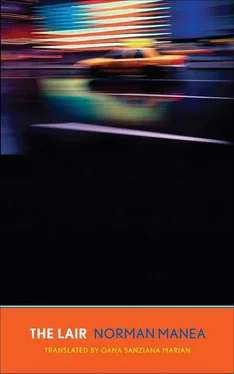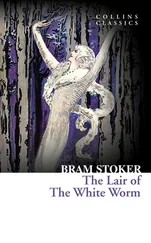The new immigrant spoke about one subject only, the evasion. The miraculous opportunity, negotiated by the gods and obscure forces.
After the first months of euphoria, Palade was overwhelmed by depression. Estrangement, solitude. The refuge of the library no longer seemed to help him. He lingered in bed for hours, days, waiting for the miracle that would revitalize him.
“I’m desperate, but not lost. Despair is a sign of vitality, I hope. In the wilderness, free to be anything or nothing, I’m not going to try to decipher the confusion of my destiny. I haven’t been given the key code yet. I’m waiting in apathy and decay. I hear the steps of the former gatekeepers on the stairs, always nearby.”
They spoke daily on the phone. Meanwhile, Gora had grown closer to Dima. Generous and affable with all compatriots, the Maestro agreed to meet Mihnea Palade, his admirer who had freshly arrived from the Homeland. When Gora later asked about his impressions of the young scholar, Dima confirmed that he’d found his apprentice in Palade.
The meeting had lifted Palade’s black cloud. The Maestro had sketched out a series of lectures related to his doctorate, promised him collaborations based on common exegetics. Even though he’d been forced to leave one university for another, Palade published intensely under Dima’s guidance, on myth and mysticism, the Renaissance and the Inquisition. He was following the encyclopedic model of his master.
Palade also first met his wife in Dima’s spectacular house. Gora knew her. Kira Varlam had been his student, and, as it would seem, something more. They’d also been colleagues, when Kira became an assistant professor in the Spanish department. In her junior year as a student, she had the lead in a film, no thanks to her relatively mediocre acting talent, but on account of her peculiar features, her slim, green eyes. She braided her long, flaxen hair into a braid that reached down to her waist and exposed her superb legs with short dresses. She’d married a sports star soon after the film’s premiere, divorced him after a year, was left with a little boy, with whom she’d emigrated to an aunt in Cleveland, immediately after finishing university.
Immediately, in fact, on their first night together, Palade put his love under the spell of ritual. In front of the bed, each of the lovers signed the eternal pact with their index fingers dipped in their own blood. “The traitor will die quickly and shamefully,” it said in a deep red at the bottom of the parchment placed in view near the bottle of red wine waiting to be sacrificed. A September night. On every anniversary, unto death, Kira would receive nineteen roses as red as the pyre that burns the promises. Kitschy little details, Peter Ga  par and Professor Gora would both agree.
par and Professor Gora would both agree.
Maestro Dima evidently had a kind of hypnotic power over his apprentice, who was, anyway, already susceptible to magic and mystery.
The years after the separation from Kira didn’t slow Palade’s productivity, nor diminish his oddness. However, at a certain point, his relationship with Dima started to focus on a question without an answer. In those days, one would have been hard pressed to find factual information about the Homeland in its own (the Homeland’s, that is) libraries. It was only once they’d arrived in their new country, across the ocean, in the American Library of Congress, that Gora and Palade discovered their Homeland’s old newspapers, and in them, the bizarre political episodes from the 1930s. And, as it turned out, it was thus revealed that, as a young scholar, the Maestro was once particularly fascinated by a sort of fundamentalist Christian Orthodox terrorism.
Palade staggered from the blow. Dima wasn’t just an extraordinary scholar, a true library unto himself, but also a generous, altruistic conversationalist. His flaws were difficult to locate.
Gora tried, in vain, to provoke a dialogue with Dima on the subject. “He’s knitting! He’s knitting a little nightcap. If I ask him about that period and about what I found in those old newspapers, he picks up his knitting needles. He begins to knit, tacitly and absently, a little black nightcap, to warm him against the cold and against memories. That’s how I interpret the silence with which he honors me,” Gora told the former student during a phone conversation.
Utterly confused and desperate for new evidence to the contrary, Palade couldn’t work, divided as he was between adoration for his schoolmaster and the unanswered questions that sprang one from the other.
“Every lover is a cretin, that’s what he is!” he’d exploded over the phone. “On top of which, a disciple! My whole life I’ve dreamed about this meeting with the Teacher. Do I have to give up my critical sense at the schoolhouse gate, so that I can remain in love? The critical spirit is outlawed at the entrance to the Temple of Love.”
Exploding with attacks of self-indictment, Palade decided, gradually, to forget about the whole dilemma. Dima was the protector, in fact, and his friendship was invaluable. He couldn’t renounce him. Slips of intelligence and morality from half a century ago? They’re not the present. If the past wasn’t clear, the present was; the scholar was a man of books, not street disputes.
Gora wondered if Palade had joined the Party, which he hated, and which he would have needed, nonetheless, to be able to leave. He would have had some experience with compromise.
These irritations would reappear, cyclically. Despite everything, the Old Man and his apprentice continued to publish books together.
At the funeral service for the dearly departed Cosmin Dima, his successor bid him a heartrending farewell. The fervor of affection, as well as a public affirmation of his liberation. In just a few phrases, Palade announced that he had a different vision of the world, as well as of the field of study to which he and his illustrious predecessor had dedicated themselves. “My Master believed in organicism; I prefer the medieval ars combinatoria. I believe in today’s theories of information and cognition, where we begin from a point in a vacuum and move toward variations that dispute their own messages and logic. I believe in the idea of imperfection and I’m obsessed with the dynamism of the mind.”
Dima’s political blind spots, and even his arrogance in ignoring or denying them, couldn’t compete with the love of his apprentice. Palade himself confirmed this, publicly declaring his affection and admiration for his lost master once more. It was probably a form of therapy for his inability to forget or forgive those political deviations and the silence that surrounded them.
“After death, Dima continues to send me messages. I reject most of his ideas, I contradict him, but we continue the polemic.”
Palade aspired to influence cosmic as well as terrestrial events, after deciphering their codes. Obsessed with social prophecies, personal cataclysms, and sexual charades, he interrogated the heavens. He’d estranged himself from the community of exiles, publishing antinationalist texts in the exile press. He made weekly attacks on the ideologies of the Nazi and Communist patriots of post-Nazism and post-Communism.
That was when the threats started, phone calls, letters, assaults on the street. He knew he was being followed, but he didn’t know how to take precautionary measures, and he didn’t inform the police. The strange packages multiplied, and he refused to open them, throwing them away in the garbage bin in the backyard. He made public his wish to abandon Christianity for any other religion, or, even more, for the religion of the nonreligious.
There was a moment when Palade decided to return for a short visit to the Homeland, to see with his own eyes whether post-Communism looked like the year 2000 or 1930. He returned to America dejected and depressed. The news intended for Professor Gora wasn’t all too calming, as much as it was communicated with gaps and a kind of homeopathy.
Читать дальше

 par and Professor Gora would both agree.
par and Professor Gora would both agree.










